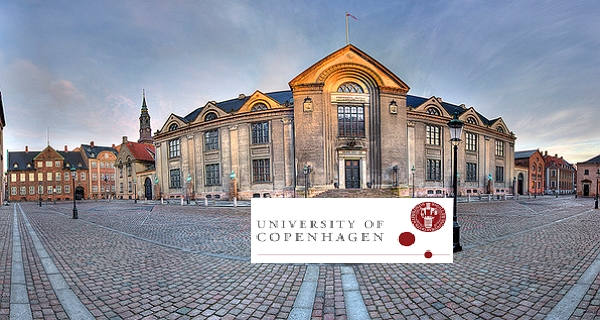The Faculty of Science / the Institute for Biology is looking for a:
PhD candidate, Cryo-electron microscopy of mycobacterial infection
Vacancy number: 22-657
Key responsibilities
“Live or let die: The intracellular fate of pathogenic mycobacteria” is project by a national consortium funded by the Dutch Research Council (OCENW.XL21.XL21.006). Mycobacteria are best known for the notorious pathogen that causes tuberculosis. However, several other nontuberculous mycobacterial species are emerging as important opportunistic pathogens of humans and are difficult to treat due to antibiotic resistance. All pathogenic mycobacteria share the ability to adopt an intracellular life style inside host immune cells, the macrophages. We aim to elucidate the bacterial and host factors responsible for this host-pathogen interplay and use the resulting knowledge to develop new ways to treat these infections.
The PhD candidate will investigate the morphological characteristics of mycobacterial cells inside host tissue. Of special interest are the membrane transport machineries (type VII secretion systems) that mycobacteria require to survive and replicate inside host immune cells. To visualize the architecture of these macromolecular structures inside the mycobacterial membrane, the newest cryo-electron tomography techniques will be applied. In addition, cryo-electron microscopy imaging and correlative techniques will be applied to determine the impact of the intracellular host environment on the expression and localization of the mycobacterial secretion systems as well as on the mycobacterial cell morphology and subcellular localization. The overall aim is to investigate the structural interaction between microbe and host tissue during infection of human macrophages and zebrafish larvae as an in vivo model.
Selection Criteria
- MSc-degree in biology, biomedical sciences, life sciences or a related discipline (also candidates close to graduating are encouraged to apply)
- Theoretical knowledge of microbiology of mycobacteria
- Practical experience in molecular and cellular biology
- Affinity and preferably experience with cryo-electron microscopy, cryo-electron tomography, correlative light-and electron microscopy and/or focused ion beam milling
- English conversation, writing skills, and presentation skills
- Communication and social skills
Research at our faculty
The Faculty of Science is a world-class faculty where staff and students work together in a dynamic international environment. It is a faculty where personal and academic development are top priorities. Our people are committed to expand fundamental knowledge by curiosity and to look beyond the borders of their own discipline; their aim is to benefit science, and to make a contribution to addressing the major societal challenges of the future.
The research carried out at the Faculty of Science is very diverse, ranging from mathematics, information science, astronomy, physics, chemistry and bio-pharmaceutical sciences to biology and environmental sciences. The research activities are organised in eight institutes. These institutes offer eight bachelor’s and twelve master’s programmes. The faculty has grown strongly in recent years and now has more than 2300 staff and almost 5000 students. We are located at the heart of Leiden’s Bio Science Park, one of Europe’s biggest science parks, where university and business life come together.
The Institute for Biology
The research within the Institute of Biology Leiden (IBL) aims to work on the science base of biodiversity and health, which is reflected in our leading principle Harnessing Biodiversity for Health. We perform innovative curiosity-driven research to answer fundamental questions, and solutions-driven research to help solving major societal challenges. The latter include protecting nature’s biodiversity, creating sustainable biotechnology and agriculture and increasing good health. Our research focuses on four Research Themes: Bioactive Molecules, Host-Microbe Interactions, Development & Disease and Evolution & Biodiversity. Located in a thriving scientific environment with our Faculty of Sciences, Naturalis Biodiversity Centre, the Leiden University Medical Centre and the Leiden Bioscience Park, IBL offers an exciting, internationally oriented and inclusive place to work and study.
Terms and conditions
We offer a full-time 1 year term position for initially one year. After a positive evaluation of the progress of the thesis, personal capabilities and compatibility the appointment will be extended by a further three years. Salary range from € 2.541 to € 3.247 gross per month (pay scale P in accordance with the Collective Labour Agreement for Dutch Universities).
Leiden University offers an attractive benefits package with additional holiday (8%) and end-of-year bonuses (8.3 %), training and career development and sabbatical leave. Our individual choices model gives you some freedom to assemble your own set of terms and conditions. Candidates from outside the Netherlands may be eligible for a substantial tax break.
All our PhD students are embedded in the Leiden University Graduate School of Science www.graduateschools.leidenuniv.nl. Our graduate school offers several PhD training courses at three levels: professional courses, skills training and personal effectiveness. In addition, advanced courses to deepen scientific knowledge are offered by the research school.
Leiden University is strongly committed to diversity within its community and especially welcomes applications from members of underrepresented groups.
Information
Enquiries can be made to Prof. dr. Ariane Briegel ( a.briegel@biology.leidenuniv.nl ). If you have any questions about the procedure, please contact Sylvia Maas (jobs@biology.leidenuniv.nl).
Applications
To apply for this vacancy, please send an email to jobs@biology.leidenuniv.nl. Please ensure that you upload the following additional documents (combined in a single PDF file) quoting the vacancy number:
- Letter of motivation
- Curriculum vitae
- MSc grade list
- Names and contact details of two previous supervisors who may be contacted for a reference
Only applications received before 31 October 2022 can be considered.

